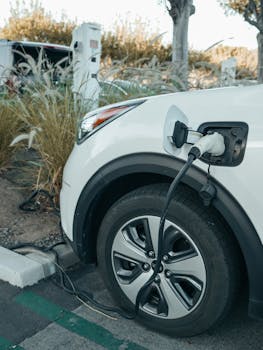Automotive marketing is a dynamic and evolving sector that plays a crucial role in the success of car manufacturers, dealerships, and service providers. By understanding and effectively utilizing various strategies, businesses can significantly enhance their visibility and sales. This article will delve into key strategies in automotive marketing.
While traditional methods such as print advertisements still hold value, modern automotive marketing increasingly relies on digital platforms to reach consumers. Digital marketing allows brands to interact with potential customers and collect valuable data for targeting. This shift has transformed how automotive businesses approach their marketing endeavors.
The integration of technology into automotive marketing has introduced innovative ways to engage with customers. From social media advertising to virtual reality showrooms, the opportunities for connection and engagement continue to expand. The following sections will explore important aspects of automotive marketing and how they can help businesses thrive.
The Importance of Online Presence
In today’s digital age, a strong online presence is vital for any automotive business. Consumers often turn to the internet for research before making a purchase. Therefore, having a well-optimized website can make all the difference.
SEO (Search Engine Optimization) significantly impacts how potential customers find automotive companies online. By optimizing website content for relevant keywords, businesses attract organic traffic and enhance their visibility. An effective SEO strategy can yield long-term benefits.
Social media platforms also offer unique opportunities for consumer engagement. Automotive brands can showcase new models, promotions, and company culture through engaging content. Regular interaction with followers fosters community and builds brand loyalty.
Additionally, online reviews and testimonials play a crucial role in shaping public perceptions. Positive feedback from satisfied customers can enhance credibility and influence potential buyers’ decisions. Engaging with customers and addressing concerns can mitigate negative feedback.
Utilizing analytics tools to track online performance ensures that automotive businesses can continuously improve their strategies. Understanding metrics such as web traffic and engagement rates allows for data-informed decisions that enhance marketing efforts.
Understanding Your Target Audience
Identifying and understanding your target audience is fundamental in automotive marketing. Knowledge of consumer demographics and preferences helps tailor marketing messages effectively. This helps brands connect with potential buyers on a personal level.
Segmentation plays an essential role in understanding diverse customer needs. Factors such as age, location, and income influence purchasing decisions. Businesses should create profiles or personas to visualize their ideal customers.
Conducting market research allows automotive brands to gather insights on consumer preferences and trends. Surveys, focus groups, and competitive analysis can unveil valuable data. This information informs marketing campaigns and product offerings.
Furthermore, understanding the customer journey is vital for effective marketing. From awareness to consideration and finally purchase, each stage presents unique opportunities for engagement. Targeting customers with relevant messages at different stages can enhance conversion rates.
Finally, adapting marketing strategies based on evolving consumer behaviors is essential. As preferences shift, the automotive industry must stay agile and responsive. Continuous monitoring helps brands remain competitive and relevant.
Content Marketing Strategies
Effective content marketing strategies engage and inform potential customers. Quality content, such as blog posts, videos, and infographics, builds trust and positions brands as industry experts. This approach helps in nurturing leads throughout the sales funnel.
Blogging about automotive topics allows brands to demonstrate knowledge and expertise. Topics could include maintenance tips, industry trends, and comparisons of various models. Additionally, relevant content can drive organic traffic through SEO.
Video content is another powerful tool in automotive marketing. Short videos showcasing vehicle features, customer testimonials, or service walkthroughs can engage viewers. Platforms like YouTube and Instagram make sharing visual content easy and effective.
Utilizing multimedia, such as infographics, helps simplify complex information. Visual representations of data or processes can enhance understanding and retention among consumers. Disseminating infographics through social media increases visibility and shares potential.
Regularly updating content ensures that information remains fresh and relevant. Seasonal promotions or model updates can drive traffic and keep audiences engaged. Consistency in content quality is key to long-term success.
Leveraging Social Media Platforms
Social media platforms have revolutionized automotive marketing by facilitating direct interaction between brands and consumers. Platforms like Facebook, Instagram, and Twitter help build brand awareness and drive sales. Understanding platform nuances maximizes marketing effectiveness.
Visual storytelling is particularly effective on platforms like Instagram and Pinterest. Automotive brands can showcase stunning imagery of their vehicles, highlighting design elements and features. Engaging visuals capture consumer attention quickly.
Utilizing user-generated content enhances authenticity and trust. Encouraging customers to share their experiences and photos can create a community around the brand. Sharing this content can boost engagement and foster loyalty.
Paid advertising options on social media provide targeted reach. Brands can tailor ads based on user demographics, interests, and behavior, improving conversion rates. A well-planned social media ad can yield substantial returns on investment.
Monitoring engagement metrics, such as likes, shares, and comments, allows for ongoing strategy optimization. Understanding what resonates with the audience enables brands to fine-tune their messages and campaigns effectively.
Integrating Technology and Innovation
The automotive industry is embracing technology to enhance marketing efforts. Innovations such as virtual reality (VR) and augmented reality (AR) create immersive experiences for consumers. These technologies enable prospective buyers to explore vehicles without visiting a dealership.
Online configurators allow customers to customize their vehicles, visualizing different options in real time. This personalization enhances the shopping experience, allowing buyers to feel invested in their purchase decisions. Engaging customers through customization can increase satisfaction.
Incorporating chatbots on websites offers instant assistance to visitors. By addressing questions or concerns in real time, brands enhance customer service without a significant increase in staffing costs. Chatbots streamline communication and improve user experiences.
Email marketing remains a valuable tool for nurturing leads and maintaining customer relationships. Customizing content based on previous interactions increases relevance and engagement. Email campaigns can effectively promote events, new models, or service reminders.
Finally, data analytics allows businesses to measure the success of their marketing campaigns. By tracking key performance indicators (KPIs), brands can optimize their strategies, generating better results over time. Data-informed decisions pave the way for improved tactics.
Building Strong Relationships with Customers
Customer relationship management (CRM) is essential in automotive marketing. Building and maintaining strong relationships with customers leads to repeat business and referrals. Fostering trust and engagement encourages loyalty to the brand.
Regular follow-ups after a purchase demonstrate commitment to customer satisfaction. Whether through email or phone calls, checking on customer experiences adds a personal touch. This proactive approach can lead to valuable feedback and additional sales.
Offering loyalty programs rewards repeat customers. Discounts, special offers, or exclusive previews of new models can incentivize customers to choose your brand repeatedly. Creating a rewarding experience enhances long-term relationships.
Hosting community events can foster connections between the brand and local consumers. Whether through charity events or car shows, in-person interactions build a sense of community. Personal engagement creates memorable experiences for attendees.
Finally, responding to customer inquiries and feedback in a timely manner enhances reputation. Acknowledging concerns or complaints shows that the brand values its customers. Strong customer service practices lead to positive word-of-mouth marketing.
Conclusion
Automotive marketing is a multifaceted field that requires a blend of traditional and innovative strategies. By understanding the importance of online presence, target audiences, and leveraging technology, businesses can achieve remarkable successes.
Engaging content, effective use of social media, and strong customer relationships all contribute to successful marketing endeavors. As the automotive landscape continues to evolve, embracing change and adapting strategies is crucial.
Ultimately, a customer-centric approach can set automotive businesses apart in a competitive market. By implementing these strategies, brands can foster loyalty and thrive in an ever-changing industry.


